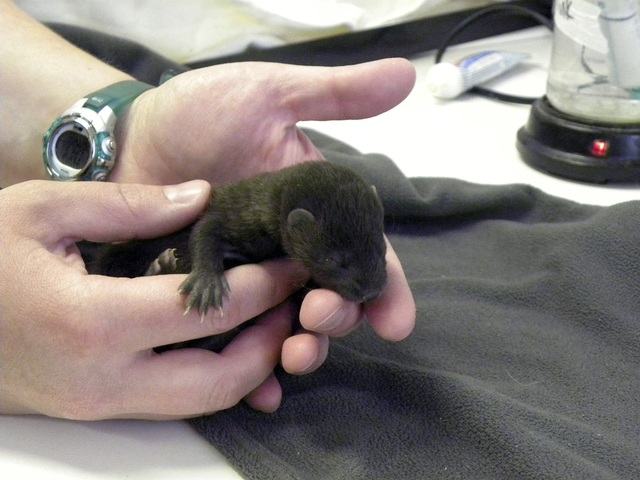By Carol Parrot
Lopez Island
Wolf Hollow has been serving the San Juans and surrounding area for over 30 years, but much of what we do remains a mystery. Carol has been a volunteer with us for about four years and wanted to share just a small amount of her experience both as an animal transport and on-site animal care volunteer.
To anyone considering volunteering time to Wolf Hollow, this is the true scoop!
Wolf Hollow: four years a volunteer and going strong!
The most common way to volunteer at Wolf Hollow is to donate about four hours of your time each week, on one specific morning or afternoon. Each day brings both routine stuff and new challenges and experiences.
Yes, there is some unexciting work that keeps the center going and licensed, like washing animal feeding dishes, cleaning cages so the animals will stay disease free, doing animal laundry (sheets, towels, etc that are used as kennel or tub liners), and keeping the work areas clean.
There is a posted list with all the routine chores that need to be done sometime each day, and we all (the rehabilitators, the interns and the volunteers) work together to get the list checked off. For Wolf Hollow to stay licensed, it needs to provide both appropriate care, and a clean, well functioning facility. The daily list also contains really fun stuff:
Preparing food for all the animals and feeding them (the baby birds need to be hand fed as frequently as every 15 minutes!); walking around the large acreage, to all the outside cages, to feed each animal and make sure it is doing well; giving the baby seals and ducklings swim time; exercising the fledgling eagles so they know how to fly and land on different perches; watching the young otters meet live Dungeness crab for the first time and figure out they are a food source; introducing young seals to the fact that the little fish swimming about are not just toys but survival food; decorating clean living areas for birds and mammals that will be housed outside in the different aviaries and room sized cages (so that they grow up in something close to native habitat); moving animals from indoor to outdoor cages, as they graduate to each new level of care; and then getting the animals ready for transport and release.
I have some hands-on time with the animals too, though everyone at Wolf Hollow tries to keep human contact to a minimum so that the animals act appropriately on release. Some of the many wonderful experiences I have had include holding an injured great horned owl, that could not self feed, while he was hand fed by a rehabilitator; cornering a large swan (that had come in undernourished and exhausted) and putting her into a large kennel when she was ready for release; helping hold a seal pup while necessary labs were drawn, bottle feeding baby squirrels that were so small they could not self feed, just to name a very few. Each day I work, I appreciate this truly amazing experience. I live on Lopez Island, and, now that I have some experience, I am often called at home when there is an injured animal on Lopez.
On those days, I call the person who found the animal or bird, and usually go to where the animal is. Sometimes I have to actually catch the animal, like a hawk with a broken wing who could run under bushes to hide really fast, or remove baby rabbits from a compost pile where the mother had made her nest and get them settled in a box and sent over to San Juan on the ferry. Or actually hold a great horned owl who had gotten tangled in plastic netting while the farmer who found him was able to cut the netting away from his wings and talons (and keep the owl from attacking the farmer as he worked on the net!).
I was not capable of doing these things until I had received some training first. I still call and ask for advice when I am assigned animals to evaluate that are out of my scope of knowledge. Sometimes I keep the animals overnight, if I cannot get them on a ferry in time, and get them to Wolf Hollow the next day. Working with the animals is exactly that: work. But it is also very rewarding. WH is not a pet shop, where the animals are cuddled. It requires a different kind of care to keep wild animals wild, as they are evaluated, rehabbed and released. The animals change from week to week, so the care that needs to be provided also changes. Summers are busiest, winters are slowest. The staff at WH is smart and helpful and capable. All in all, it brings a giant smile to my face.
Wolf Hollow is always in need of volunteers to help transport animals to our center on San Juan Island, including animal pickup; or individuals with boats or planes willing to bring animals to the island! Anyone interested is free to call Wolf Hollow at 378-5000 or contact our volunteer coordinator at volunteers@wolfhollowwildlife.org.



